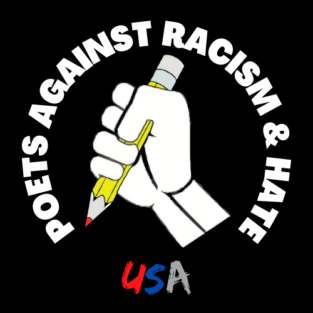By Patricia Thrushart, Cofounder, Poets Against Racism & Hate USA
On June 13, 2020, the Venango County Black Lives Matter “Enough is Enough Rally” in Franklin, PA, drew what the Explore Venango online news source deemed a “large crowd” of area residents reacting to the death of George Floyd and protesting systemic racism. Like other predominantly White small towns across the country, Franklin was a place where, according to event co-organizer Michelle Jones as quoted on Explore Venango, many residents were unaware of the extent of racism in their community.
The protests in response to George Floyd’s murder subsided over time, but the events of Summer 2020 have had lasting effects in some places. Franklin is one such spot. Three years after those initial protests, Franklin Public Library continues to offer its constituents ongoing opportunities to explore the topic of racism.
Affiliated with the Oil Region Library Association (ORLA), Franklin Public Library supports a community numbering 6,097 people (as of 2020). Approximately 95% of its residents are White. Other libraries in the ORLA system are situated in towns with similar demographics.
In this context, it is commendable that the association’s mission includes nurturing a diverse, educated, and inclusive community. This past summer, Franklin Public Library hosted a series of community conversations designed to do exactly that. Topics such as “Why Was I Born Black?” and “Difficult Conversations About Racism” were included alongside presentations on gardening, genealogy, and environmental issues.
Poets Against Racism & Hate USA was invited to participate in this series. On July 13, 2023, I presented a program on writing (and reading) social justice poetry to a small but engaged audience. Because of its size, we were able to have an intimate conversation about the power of poetry to confront and challenge racism, bigotry, and hate. I shared works by some of my favorite poets writing in this vein, starting with Langston Hughes’s “Let America Be America Again,” written in 1935. We agreed that it is shocking to note how relevant that poem still is today.
Other poems we discussed included:
“The Hill We Climb,” Amanda Gorman, 2021
“When I Turned I Woke,” Gerard Tournesol, 2015
“Still I Rise,” Maya Angelou, 1978
“A Small Needful Fact,” Ross Gay, 2015
The conversation was a chance to step back and consider why poetry is so impactful when challenging injustice. We talked about how important it is to make sure that people of color, and members of other historically marginalized groups, are at the mic sharing their narratives. And we talked about appropriation, allyship, and authenticity.
I came away impressed again at the commitment ORLA has toward facilitating these conversations in the region and am happy to say we’ve been invited back in September for more dialogue about the intersection of poetry and social justice.
Sources
https://en.wikipedia.org/wiki/Franklin,_Pennsylvania (demographic data)
Explore Venango: Large Crowd Turns Out for ‘Enough is Enough Rally’ in Franklin
